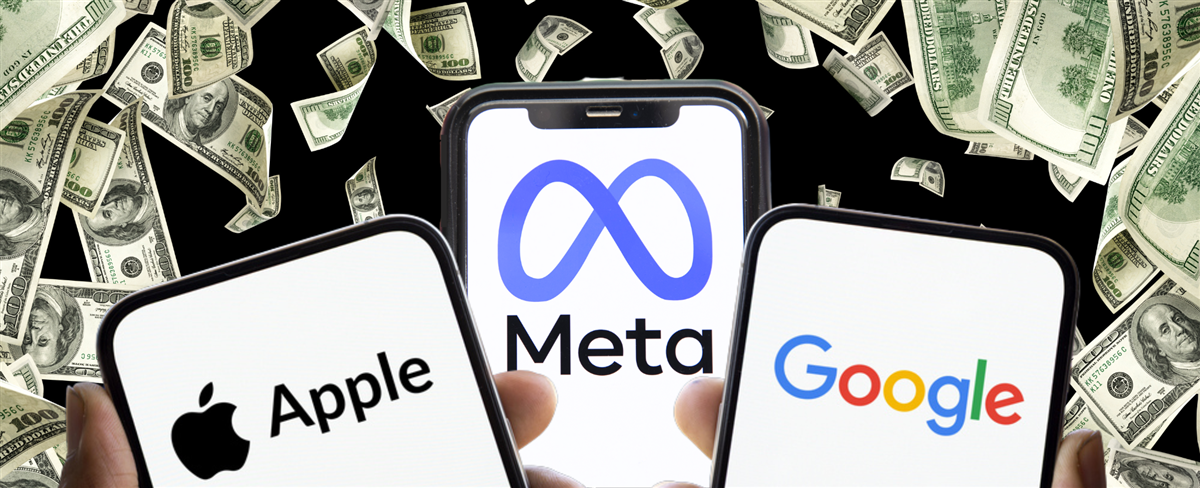
These three Magnificent Seven stocks spent the most money on buybacks of all S&P 500 companies, returning large amounts of capital to shareholders. I’ll detail which of these huge firms led the way in share repurchases and also provide insight on whether they’ll be able to do so again in 2025. These companies may also still increase the amount of stock they repurchased in 2024.
Apple: The World’s Largest Company and the World’s Largest Buybacks
Tech giant Apple (NASDAQ: AAPL) spent the most on stock buybacks in 2024. The company has already reported its full fiscal 2024 results, recording spending just over $100 billion on share repurchases. However, in the calendar year 2024, the company reported just under $78 billion spent on buybacks. The largest of these came in Q2, when the company spent nearly $29 billion. This marked the largest buyback spending in a single quarter in Apple’s history. The company’s level of buyback spending over the last twelve months now sits at its highest level of all time. It has recovered significantly after dipping down in mid-2023.
So, can Apple do this again in 2025? Back in March, the company authorized $110 billion in buyback power. Since then, Apple has used around half of the authorization, at just over $54 billion. The Apple Board of Directors must authorize a new buyback program if the company wants to maintain this level of spending. That is certainly not something they have had a problem doing in the past. The company is sitting on cash and short-term investments of $65 billion. It also brought in $108 billion in free cash flow over the last 12 months. As long as the machine keeps chugging along, Apple can keep up the same level of buybacks.
Alphabet: Massive Buybacks and a Strong History of New Authorizations
Next up is Google's parent company, Alphabet (NASDAQ: GOOGL). In 2024, the firm spent just under $47 billion on share buybacks. The company’s buyback level has been growing since late 2017. However, the growth rate of its buyback spending has slowed dramatically. In the three years ending Sept. 2021, last-12-months buyback spending had a compound annual growth rate (CAGR) of 74%. In the three years since Sept. 2021, the CAGR has slowed to just 12%.
Alphabet’s latest buyback authorization came in the company’s Q1 earnings report. The figure came in at $70 billion; the company also announced its first-ever dividend. If Alphabet's Q4 buyback spending continues at its 2024 pace, it will use up about $63 billion of this authorization by year-end. Thus, the company will also need to authorize another buyback program. The company authorized a $70 billion buyback program in Q1 of 2022, 2023, and 2024. The company’s cash and short-term investments, as well as free cash flow, sit moderately below their average over the past three years. This may make it unlikely that the firm will announce a buyback authorization larger than $70 billion. However, $70 billion is still doable and adequate.
Meta: Historic Cash and Cash Flow Sets Up Nicely for 2025 Buybacks
Last up is Meta Platforms (NASDAQ: META). In 2024, the company spent a whopping $40 billion on share buybacks. Unlike the other two firms, Meta's share buyback spending is now well below its peak levels. In the last 12 months, buyback spending has gone down around 13% from the level it reached in early 2022. However, it has spiked massively from its lows in 2023. Two things that do sit at their all-time highs for Meta are its cash and free cash flow generation. As of Q3, the firm was sitting on nearly $71 billion worth of cash and short-term investments. It has also generated over $52 billion in free cash flow over the last 12 months.
Meta last reported a buyback authorization of $50 billion in Q1 2024. Prior to that, it still had nearly $31 billion left in buyback authorization from 2023. If it continues at a similar buyback pace in Q4, the company could still have over $25 billion in buyback authorization available. Also, due to its historic success, the company can authorize much more for buybacks in 2025.
Overall, assuming the strength of the overall economy holds up in 2025, these firms can likely continue their strong buyback spending.
